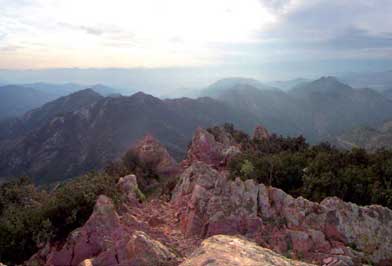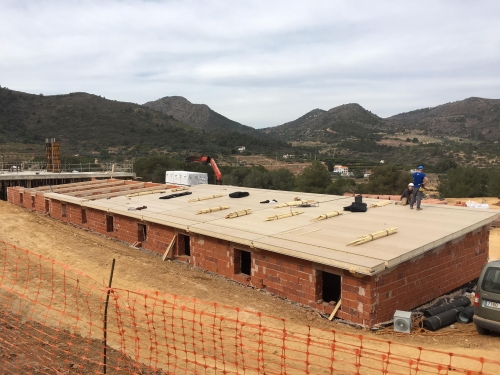Ecotourism powered by the sun and the crowd
Spain is the European country with the largest area of natural protected space. In fact, in this regard, it is the third country in the world behind only USA and Russia. Spain hosts in excess of 2000 natural protected areas registered with the European chart for sustainable tourism, has 11 geoparks and 47 biosphere reserves. All those natural reserves represent a substantial tourism potential. As long as they are utilised in a respectful and sustainable manner.
Tourism and the quality of the natural environment are intimately linked – travellers are naturally attracted to places where natural resources are managed responsibly and respectfully. This is especially true of course for the growing area of ecotourism, where environmental sustainability plays a key role.
What is ecotourism? it’s a form of responsible leisure traveling which has a very low environmental impact and which respects the natural and social environment in which it takes place.
Ecotourism is a sector in full expansion in Spain, growing almost day by day. Turespana, the national Spanish tourism office, estimates that there are 30 Million visitors per year in natural protected areas, of which in excess of 2 Million are genuine ecotourists. It also records more than 20 000 bird observers. The private sector is also betting on ecotourism. Not only is it profitable, but it adds real value to the destinations, tourism operators and hotels which embrace it.
Hotel operators, in particular, are ever more committed to the development of a more sustainable tourism. They are fully aware that their own viability depends largely upon their ability to develop a form of responsible tourism: environmentally friendly, energy efficient, sustainable over time and supportive of the local population and economy.
For hotels, sustainability and efficiency is not only a marketing imperative to attract more clients, it also translates into important cost savings, and hence better economic competitivity. A bioclimatic infrastructure, renewable energy, intelligent thermostats, movement detectors, LED lighting, high thermal insulation, etc…all those technologies and solutions bring with them substantial medium to long term cost savings.
Ecotourism in Mar de Fulles
Introducing Mariajo and Juanma. Both have been Greenpeace activists for several years and perfectly understand the current tourism landscape. It’s on this basis that they decided to create the Mar de Fulles ecotourism complex: A bioclimatic hotel, a lodge and a restaurant entirely supplied through its own organic vegetable garden. Located next to the nature park of Sierra de Espadan (Castellon) and a wild bird special protection area managed by Natura 2000, it is a pioneering and innovative project which incorporates the concepts of ecology, sustainability and energy efficiency at a level never before seen in Spain.
The project has been under development for 11 years and is set to open its doors in May 2016. The whole complex is fully integrated in the landscape, based on a bioclimatic construction and is fully self sufficient. In particular, it has no connection to the electric and water network.
The Mar de Fulles complex will support all its electricity requirements through off-grid photovoltaic panels with support batteries. The installation will be able to generate 41.480 W of power and accumulation of 12.340 AH/C100 – 48V (592 KWH) with 82 batteries. The total cost of the installation is €280.000. Part of the cost is covered by a subvention from the council of Valencia. For the remainder €175.000, the promoters have decided to raise a loan through the crowd, using the services of positive impact crowdlending platform ECrowd!. Individuals investing in the project will receive an annual interest rate of 4.5% over the 7 years of the loan duration. This represents the first ever off grid solar panel installation financed through crowdlending in Spain!
Mar de Fulles’ self-sufficiency is not limited only to electricity. «Water is obtained from our own well and will be purified on site. As for the air conditioning, an ingenious system of natural ventilation will provide air conditioning in summer; thanks to high thermal insulation and the mild and sunny local climate, the heat input will be minimal, «explains Juanma Urbán, promoter of the project and responsible for agency “Ecotourism Espadán”.
Another aspect which makes the project unique is its great social value. «We have taken special care in deciding how to do things, the who and why of every decision. All suppliers are local, the products used are of proximity, we have not hired any large companies but have instead sought to give opportunities to small, local, emerging professionals and generally have always looked to develop synergies wherever we could … «says Urban. Thanks to this responsible approach, the head of Ecotourism Espadán estimates that the final cost of the project will be one million euros less than initially anticipated: «If the project is valued at more than three million euros, it will cost about two million in the end». Doing things right has had a very real and immediately beneficial impact on the project.
With Mar de Fulles, the promoters wanted to demonstrate that ecology does not necessarily rhyme with spending more money. This is not only true for the cost of the development of the project, but will also be reflected in the price of the accommodation: The 4 stars hotel will offer accommodation starting from only €49 per night and per person whilst the lodge will be available from €29 only!
Individual investors on ECrowd! who have invested at least €1000 in the off-grid solar panel installation will benefit from a 10% discount on the price of accommodation, valid until end 2017.
Yet one more reason to support this pioneering ecotourism concept. Hurry up though, the investment period is closing soon.



Comments are closed.